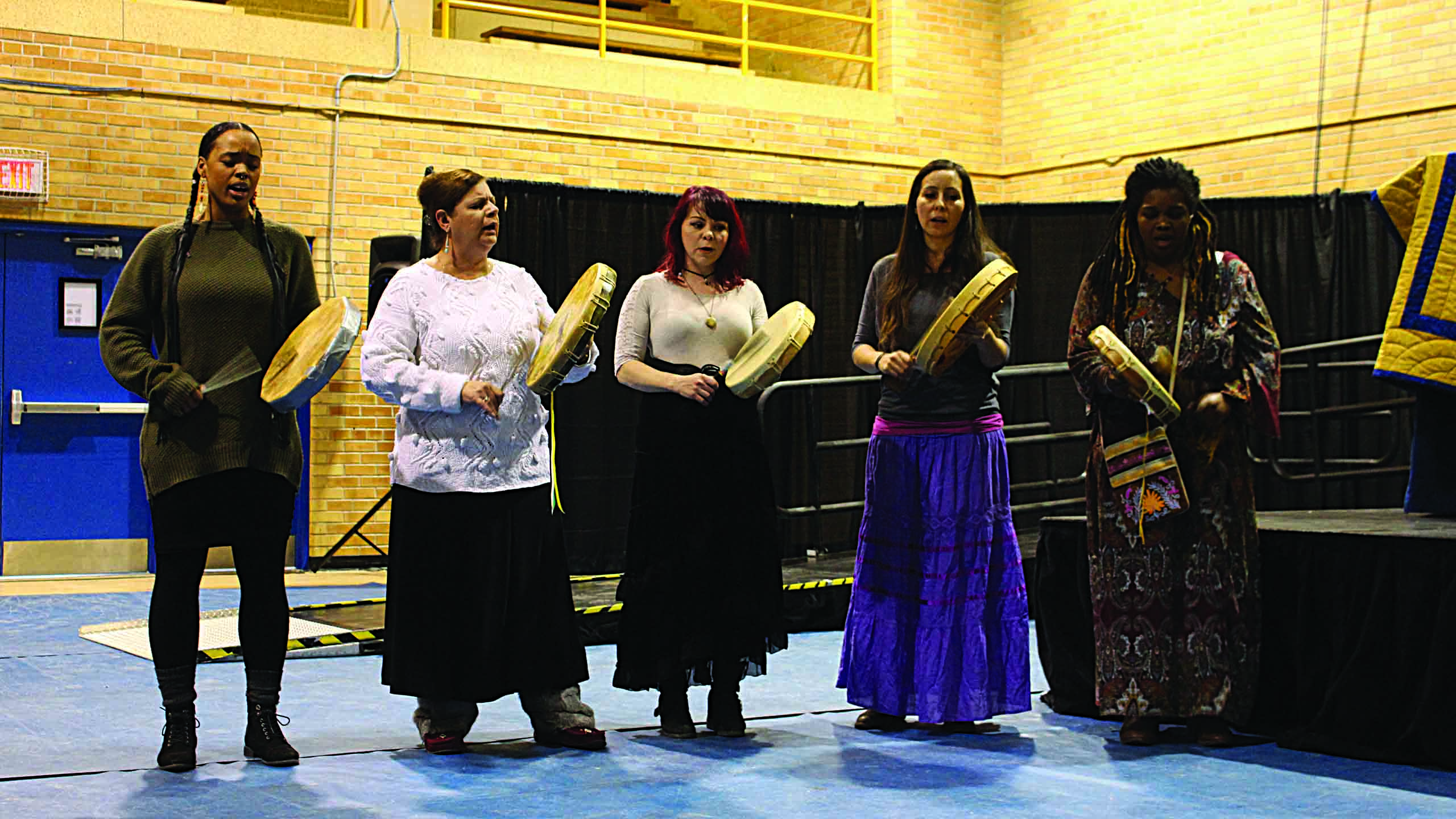By Kiernan Green
Ryerson has formed a working group to review 15 recommendations offered by the university’s Truth and Reconciliation report, released in January.
The recommendations will ensure that action is taken in terms of the Truth and Reconciliation report, and changes are implemente said Ryerson Elder and traditional counsellor Joanne Dallaire. “We have a whole lot of movement going on university-wide with the incorporation of many things Indigenous. All of this is always driven by the students,” she said.
The group is co-chaired by the university’s provost Michael Benarroch and vice-president equity and community inclusion Denise O’Neil Green.
Green co-authored the Truth and Reconciliation report with Ryerson Elder and traditional counsellor Joanne Dallaire. Faculty members, staff and students with “areas of responsibility within the institution, and interest in supporting the initiative,” also make up the group, said Ryerson media relations officer Dasha Pasiy.
According to Pasiy, the group is planning its first meeting later in March.
Some of the 15 recommendations that will be addressed by the working group are that the university should increase the access of science, technology, engineering and mathematics (STEM) programs to Indigenous students, increase university recruitment towards Indigenous youth and keep track of courses with an Indigenous focus or include Indigenous content.
RSU president Susanne Nyaga said some of the reports recommendations align with what she has heard Indigenous students request from the university, but is sure “there is always more that can be done.” She said the report a “first step” towards adequate truth and reconciliation, before reaffirming that she could not speak on behalf of the Indigenous student opinion as a non-Indigenous herself.
“Indigenous faculty and staff make up less than one per cent of the Ryerson population. This means that Indigenous students don’t see themselves represented within the school as a whole,” said Nyaga. “Ryerson is falling behind in comparison the the population of Indigenous Peoples in Canada, Ontario and even in Toronto.”
The 15 recommendations were chosen from 50 total recommendations also outlined in the report. Each recommendation surrounded one of six themes, including the “Indigenization” of Ryerson, supporting Indigenous learners, and deepening community engagement.
Another recommendation made by the report was the continuation of planning for an Indigenous language course. An Indigenous language course was first planned to be introduced to Ryerson following demands from the Ryerson Students’ Union Colonialism 150 campaign . The report does not directly reference this RSU campaign.
Nyaga said that this wasn’t the first time decision makers at the university had “steps because of resistance and direction coming from the community” without giving the community credit.
“I am not surprised that the Indigenous students who spoke out and asked for the RSU to help them lead change are not recognized in the report,” she said. “However, I am glad to see that the work is starting, and that most of their demands were directly or indirectly addressed within the report.”
When asked about the Colonialism 150 campaign’s lack of mention in the report, Elder Dallaire said that the voice of the RSU is as important as any other but that the report was meant to reflect the information gathered solely by Ryerson.
Ryerson University President Mohamed Lachemi said that $300,000 will go towards meeting another goal set by the report—hiring one Indigenous person for each of the university’s six faculties. However, hiring cost will be “much more than that,” said Lachemi.
According to the report, seven out of Ryerson’s 53 departments have Indigenous staff.
Dallaire said that Ryerson’s commitment to the 15 truth and reconciliation recommendations shows a new environment and direction from the university towards it’s Indigenous community.
“I think all of the Indigenous faculties and students are excited about where this can go. It opens the doors for all kinds of new work, all kinds of education being done,” she said. “We want our history to be known, and we want appreciation by the people who are living on our land.”













Leave a Reply